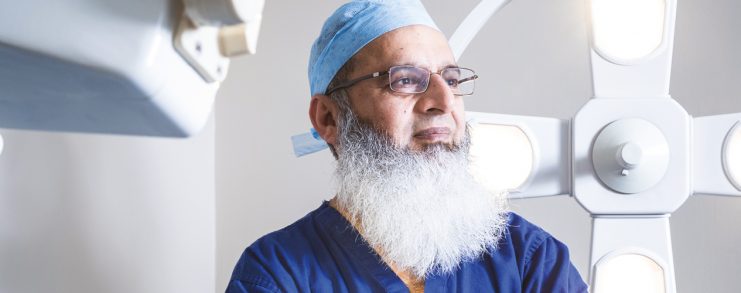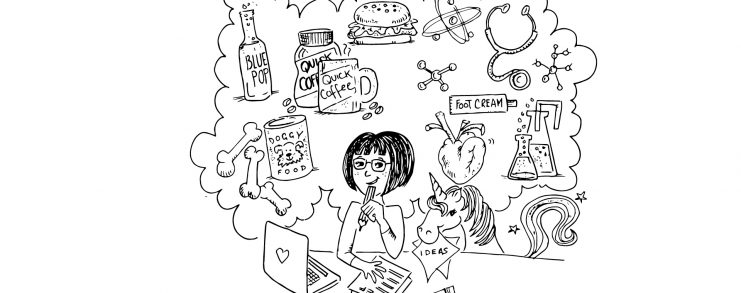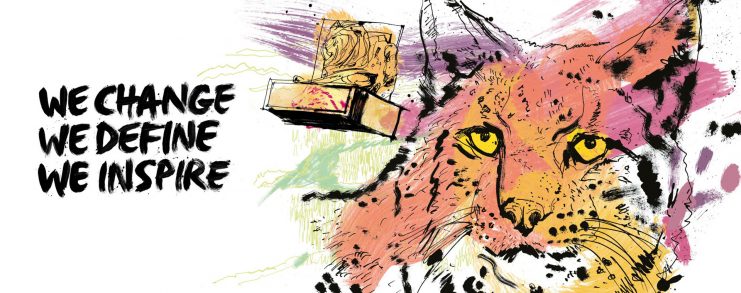Lou Shipley is a Creative Director at the Havas Lynx Group. In this joint blog, alongside David Hunt, CEO, Lou shares her thoughts on the importance of creativity in healthcare.
For too long pharma has suffered with anxiety and paranoia. Determined to position ourselves as inferior to consumer marketing and communications, citing regulations, global complexities and politics. It’s an excuse for mediocrity. It’s also unattractive. Five years ago we launched the Havas Lynx Group on our #GoodPharma manifesto. We believed it was possible to make money and do good. To help patients and carers, and drive the commercial success of our clients. We knew with real purpose and ambition, we could attract the most brilliant minds to join our mission. Below Lou Shipley, a Creative Director at the Havas Lynx Group, shares the truth about being a healthcare creative.
The truth about being a healthcare creative, by Lou Shipley
‘Are you sure that’s a good idea?’ That was the reaction from my industry peers in consumer- land when I announced my decision to work in healthcare. And naturally my initial concerns were all based on their ‘pharma urban myths.’ What if it’s boring? Creatively limiting? Will it be endless shoots of doctors with stethoscopes? Will I regret flunking science at school? Will I mainly be flogging athlete’s foot cream?
And now, three years into my healthcare journey, I know all of those myths are perpetuated by people with absolutely no idea what it’s really like in healthcare. I’ve done my fair share of work for a plethora of me-too consumer brands. Instant coffee, banks, dog food, cars and microwaveable burgers; all scrabbling around to differentiate themselves from a carbon copy competitor. And that’s fine, but all too often I’d find myself thinking: is this it? And that’s exactly the reason why I chose healthcare over consumer advertising. There’s far more to get your teeth into, it’s really interesting and it’s a whole lot more rewarding.
You see, I’m a geek, and I love interrogating a brief to find out all there is to know about the subject in hand. It’s about digging for that juicy nugget of truth, and the solid gold insight that makes a brilliant idea. Sadly, there’s only so much interrogating a microwaveable burger can handle. I know, I’ve tried.
But in healthcare, you have gallons of studies, unique benefits, more USPs than you can shake a planner at. It’s all at your disposal to find great creative ideas. And you know what? These are the products that actually deserve great creative – I’d much rather give my all to a brief if the end result means I’ve changed a life for the better. That kind of effort feels somewhat wasted on most consumer campaigns. And that feeling is emphasised when I hear moving testimonials from patients and HCPs. I never felt emotional about dog food. But I did reach for the tissues after hearing patients talk about life-changing treatments.
These are the products that actually deserve great creative – I’d much rather give my all to a brief if the end result means I’ve changed a life for the better.LOU SHIPLEY, CREATIVE DIRECTOR, HAVAS LYNX GROUP
Admittedly, it’s not all roses around the layout pad and creative unicorns skipping through the office. It’s really hard work, with hundreds of rules, regulations and stakeholders to please. Global campaigns are accompanied by translation issues, forcing you to think bigger and better than lazy clichés or puns (thank goodness for that). And don’t start me on the campaigns where we can’t talk about the product or benefit. But is any of that really much harder than trying to sell a blue alcopop by doing something ‘whacky’? (Yep, that was the brief and it really was as soul destroying as it sounds.)
Lastly of course there’s the science. Most days I’m transported back to school chemistry lessons (I did flunk). But thankfully, I’m surrounded by people who are smarter than me, translating the science into something even I can understand.
So yes, it’s a different world. But I don’t feel like I’ve turned a weird corner into a creatively moribund science lab. And I don’t need to unlearn everything from consumer advertising. Quite the opposite, it’s about using my skill set to create work with meaning. How many people in the consumer ad industry can truly say that?
As Lou explains, of all sectors, I believe that ours is of the greatest importance. When you speak to patients, families and their care team, you witness our ability to support, help and even change lives. Our insights and ideas have the power to scale scientific discoveries and transform healthcare innovations into global answers. But only if we replace anxiety with confidence, mediocrity with purpose, and attract the brightest, smartest and most creative minds to join our cause. We can change the world, once we change the way we do healthcare communications.


